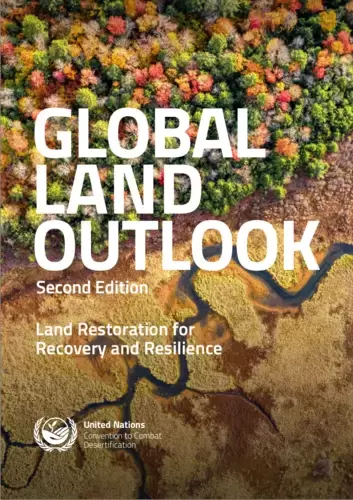
Topics and Regions
Landpages.co.ke is a medium of passing this message.
Details
Public Email
Location
Contributions
Displaying 561 - 570 of 740No Climate Transition Without Securing Land Rights
The 15th session of the Conference of Parties (COP15) to the United Nations Convention to Combat Desertification (UNCCD), is taking place in Abidjan Côte d’Ivoire, from 9 to 20 May 2022. The theme: “Land, Life. Legacy: From scarcity to prosperity.” “We are faced with a crucial choice,” Deputy Secretary-General Amina Mohammed told participants: “We can either reap the benefits of land restoration now or continue on the disastrous path that has led us to the triple planetary crisis of climate, biodiversity and pollution”
Learning lessons from the implementation process of AU Agenda on land
This assessment study on land policy in Africa was initiated by the Civil Society (CSO) Platform, and supported by UN-Habitat, Global Land Tool Network (GLTN), International Land Coalition (ILC) and Welthungerhilfe (WHH). It sets out to learn lessons from the implementation process of AU Agenda on land and stimulate discussion on the way forward to further improve land rights and land governance in Africa as a basis for equitable progress and prosperity.
Good Practices in Land Rights Work.
In order to further benefit from the great wealth of
Great Green Wall Accelerator Technical brief - Edition N°1
The Sahel region's Great Green Wall Initiative received a major boost from the African Development Bank on Monday. During a forum
hosted by French President Emmanuel Macron and His Royal Highness the Prince of Wales, the Bank pledged to assist in mobilising up
to $6.5 billion over five years, to advance the landmark initiative.
The resources will be made available through a range of programmes in support of the Great Green Wall by drawing on internal as well
Moving towards a twin-agenda: Gender equality and land degradation neutrality
The conceptual framework for Land Degradation Neutrality (LDN) highlights that land degradation in developing countries impacts men and women differently, mainly due to unequal access to land, water, credit, extension services and technology. It further asserts that gender inequality plays a significant role in land-degradation-related poverty hence the need to address persistent gender inequalities that fuel women’s poverty in LDN interventions. This paper presents recommendations for moving towards a twin-agenda: gender equality and land degradation neutrality.
Gender and land degradation neutrality: A cross-country analysis to support more equitable practices
Women and men have unequal opportunities to address land degradation. While adoption of Sustainable Development Goal target 15.3 leads the world to ‘strive towards land degradation neutrality (LDN)’ by 2030, gender concerns are sparsely considered in LDN programming to date. To achieve LDN in regions with deeply entrenched socio‐cultural norms requires gender‐responsiveness, accounting for the varied gender components of land degradation.
A Global Baseline of Carbon Storage in Collective Lands
Forests and other lands are essential for achieving climate and development ambitions. If appropriately leveraged, natural climate solutions can contribute upwards of 37 percent of cost-effective CO Indigenous Peoples and local communities are key to achieving such outcomes. 2 mitigation by 2030,1 and evidence shows
This report presents the most comprehensive assessment to date of carbon storage in documented community lands worldwide.
Rights-Based Conservation: The path to preserving Earth’s biological and cultural diversity?
Given the urgent need to prevent a collapse of biodiversity across the Earth, certain governments, organizations, and conservationists have put forward proposals for
bringing 30 percent and up to 50 percent of the planet’s terrestrial areas under formal “protection and conservation” regimes. However, given that important
Global Land Outlook
The second edition of the Global Land Outlook (GLO2), Land Restoration for Recovery and Resilience, sets out the rationale, enabling factors, and diverse pathways by which countries and communities can reduce and reverse land degradation by designing and implementing their bespoke land restoration agenda. Land restoration for recovery and resilience is about creating livelihood and development opportunities for people simply by changing the way we use and manage our land resources.
Technical Guide on the Integration of the Voluntary Guidelines on the Responsible Governance of Tenure of Land, Fisheries and Forests in the Context of National Food Security into the Implementation of the United Nations Convention to Combat Desertificati
Produced jointly by the secretariats of the Food and Agriculture Organization of the United Nations (FAO) and the United Nations Convention to Combat Desertification (UNCCD), with contributions from multiple stakeholders, this technical guide addresses the integration of the Voluntary Guidelines on the Responsible Governance of Tenure of Land, Fisheries, and Forests in the Context of National Food Security (VGGT) within the implementation of the UNCCD and Land Degradation Neutrality (LDN), thus opening a new chapter in ongoing efforts to combat desertification, land degradation, and drought



